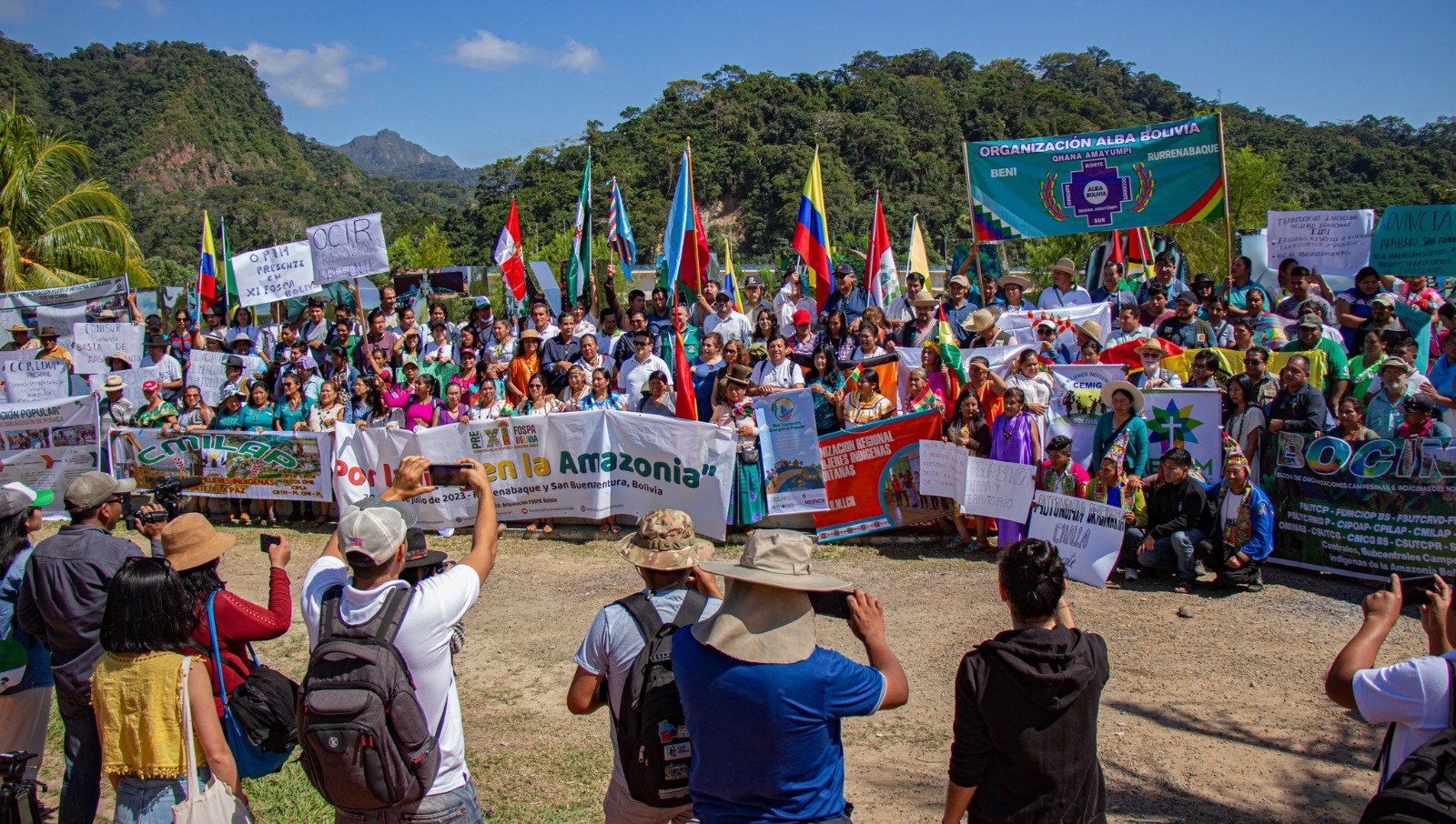Under the motto "For Life in the Amazon," the XI Pan-Amazonian Social Forum (FOSPA) will be held from June 12 to 15 in Bolivia. The cities of Rurrenabaque and San Buenaventura are set to welcome around 1,000 participants from the nine countries that comprise this region. The event will focus on four main themes: Mother Earth; Indigenous Peoples and Amazonian Territories; Extractivism and Alternatives; and Women's Resistance.
The Pan-Amazonian Social Forum (FOSPA) was established in 2000 as a mandate of the World Social Forum. Its purpose is to create a space for reflection, exchange of experiences, and generation of proposals concerning the collective rights of Indigenous peoples, peasant communities, Afro-descendants, riverine communities, and quilombolas, as well as their territories and the environment of the Amazon.
As is well known, the Amazon is a macro-region that spans nine South American countries: Brazil, Peru, Bolivia, Venezuela, Colombia, Ecuador, Suriname, Guyana, and French Guiana. Covering approximately 8 million square kilometers, this territory contains nearly half of the world’s tropical forests. The Amazon is incredibly diverse in both species and cultures, with 377 Indigenous peoples and over 250 native languages identified. This socio-environmental tapestry is woven by the hands of various peoples, many of whom have concentrated in urban areas.
But the Amazon is more than just the basin of the river that gives it its name, the Amazon River, or the diversity of its people. The Amazon is a territory formed by a network of rivers, some large and some small, which, as they flow through the tropical forest, create a tapestry of human, natural, and cultural relationships that coexist harmoniously. Today, this balance has become unstable due to large-scale extractive projects and lack of policies that preserve ancestral ways of life.
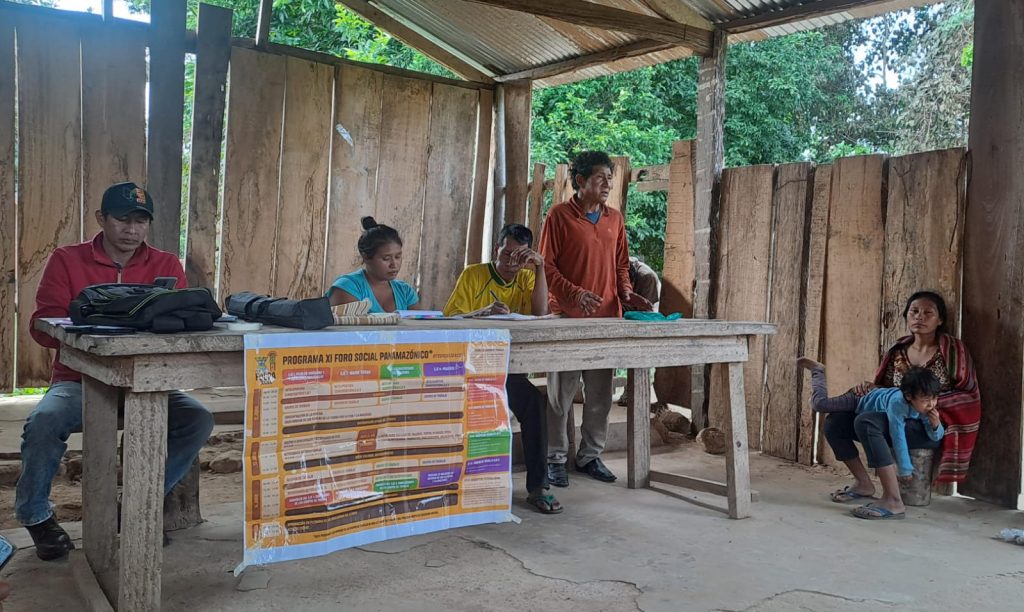
Two decades of fighting for the Amazonian forests
The discussions surrounding the Pan-Amazonian Social Forum have addressed the myriad challenges of the Amazon region, the living conditions of its populations, and the environmental impacts it faces. The Forum has evolved into a regional movement that challenges economic policies driven by transnational corporations and national governments, which often prioritize capitalist development based solely on extractive industries.
As a result, FOSPA has become a bulwark against the spread of a colonial mindset that promotes economic growth at the expense of natural resources within these territories. Along this path, it has critiqued harsh interventions in nature and excessive resource extraction, which frequently result in widespread violations of the rights of the Amazonian p
Over the course of 20 years, FOSPA’s activities have highlighted issues such as Indigenous population displacement from ancestral lands, the shrinking of community spaces necessary for holistic development, and severe the environmental degradation that disrupts habitats and contributes to climate change. Consequently, the Forum has not only raised concerns about the rights of Amazonian peoples but also advocates for the protection of the Amazon itself, and aims to foster greater societal awareness and commitment to socio-environmental responsibility.
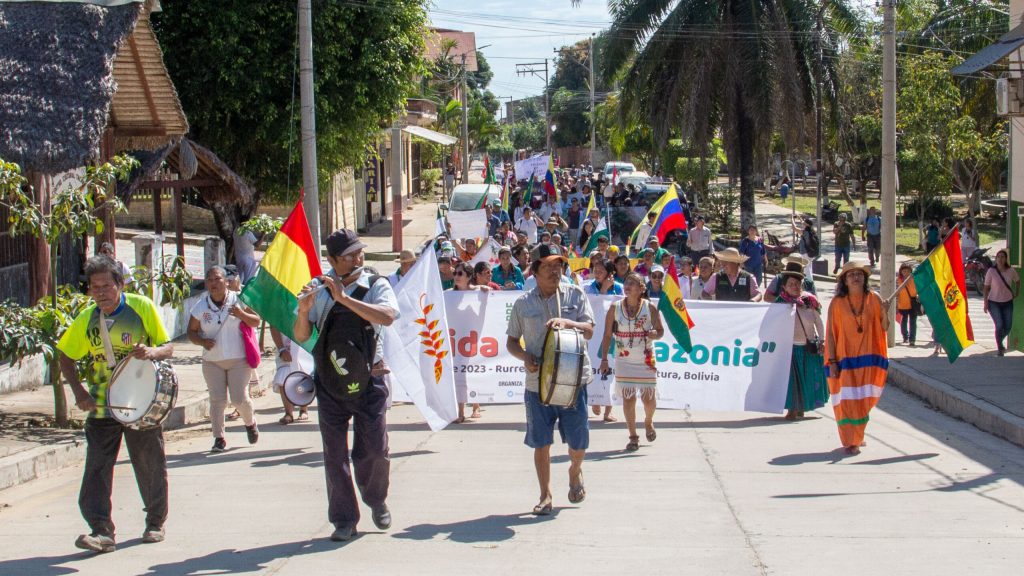
A Bolivian FOSPA
Under the theme “For Life in the Amazon,” the XI Pan-Amazonian Social Forum will be held in the Bolivian cities of Rurrenabaque and San Buenaventura. This edition seeks to highlight the importance of comprehensive care for life in one of the planet’s most diverse regions. From this perspective, life is framed in terms of dignity and the defense of the diversity of Amazonian peoples. Amazonian cultures view nature as a subject with rights and maintain a transgenerational perspective on socio-environmental awareness.
The XI FOSPA will uniquely address the most pressing issues of the Amazon through both theoretical and practical approaches. It will include 16 on-site visits, such as to Madidi National Park, the Pilón Lajas Biosphere Reserve and Community Land of Origin, and the Tsimanes of Yacama, who are advocating for territorial rights. Participants in these visits will directly observe the diverse challenges faced by the peoples and ecologies of the region.
The discussions are organized around four main thematic axes: Mother Earth; Indigenous Peoples and Amazonian Territories; Extractivism and Alternatives; and Women’s Resistance. Each axis is further divided into 17 working groups focusing on governance, territory, water, mining, extractivism, and the role of women. These groups have been meeting for weeks, both in person and virtually, with the aim of presenting a comprehensive mapping of Amazonian realities at the XI FOSPA.
From these collective and assembly-based discussions, a series of documents will be produced and presented to the authorities. The goal is for these documents to become part of an advocacy strategy for future COP (Conference of the Parties) meetings and international climate change summits.
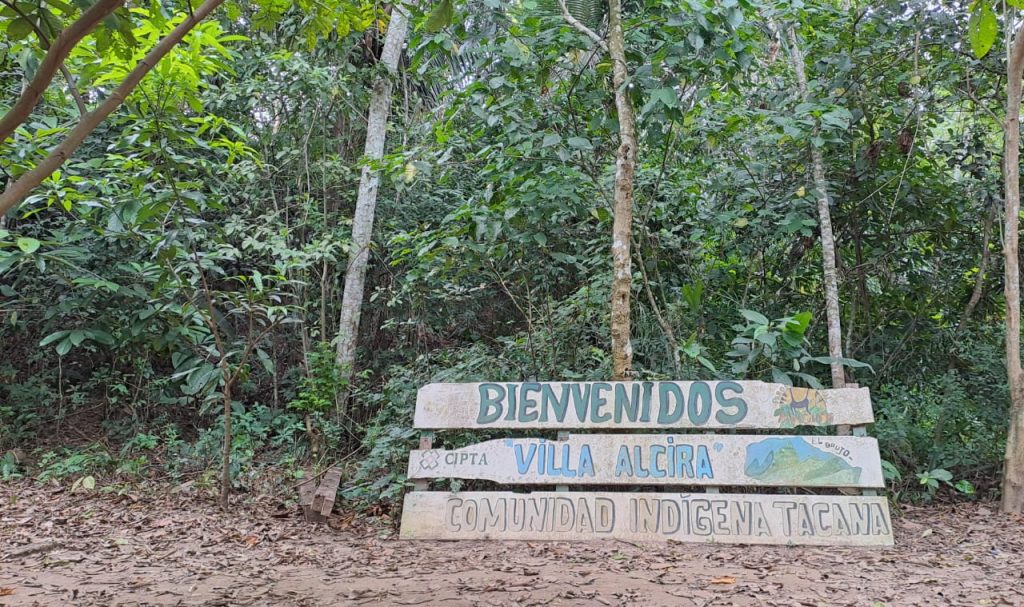
Painting the Amazon with hope
Beyond the spaces for reflection and collective construction that have been developing, this broad, diverse, and vibrant collective, much like the Amazon itself, aims to bring strokes of color and hope to a horizon that often seems gray. Thus, the XI FOSPA seeks to transcend the usual sociopolitical spaces and promote greater awareness among the global population about the role of the Amazon and the peoples who inhabit it.
This edition of the Pan-Amazonian Social Forum does not aim to be a space for empty complaints and laments about lost struggles and dreams. Instead, it aspires to become a platform for action that highlights ongoing transformation processes. We, the members of FOSPA, aim to build political alternatives and collective proposals to coexist harmoniously with Mother Nature and the environment that constitutes the Pan-Amazon region.
We dream big. We envision this space as an immense tapestry, woven with colorful threads, mapping out a work plan and a route of action that supports the defense of life, through the articulation of Amazonian peoples, their traditional knowledge, and ancestral practices. We are aware that true change will only be possible if we move out of the comfort zone of the already convinced and seek a new common ground.
We wholeheartedly hope that this XI edition of FOSPA will inspire society with reflections and thoughts. May we sow seeds that will bring forth new actors committed to caring for and defending life in the Amazon.
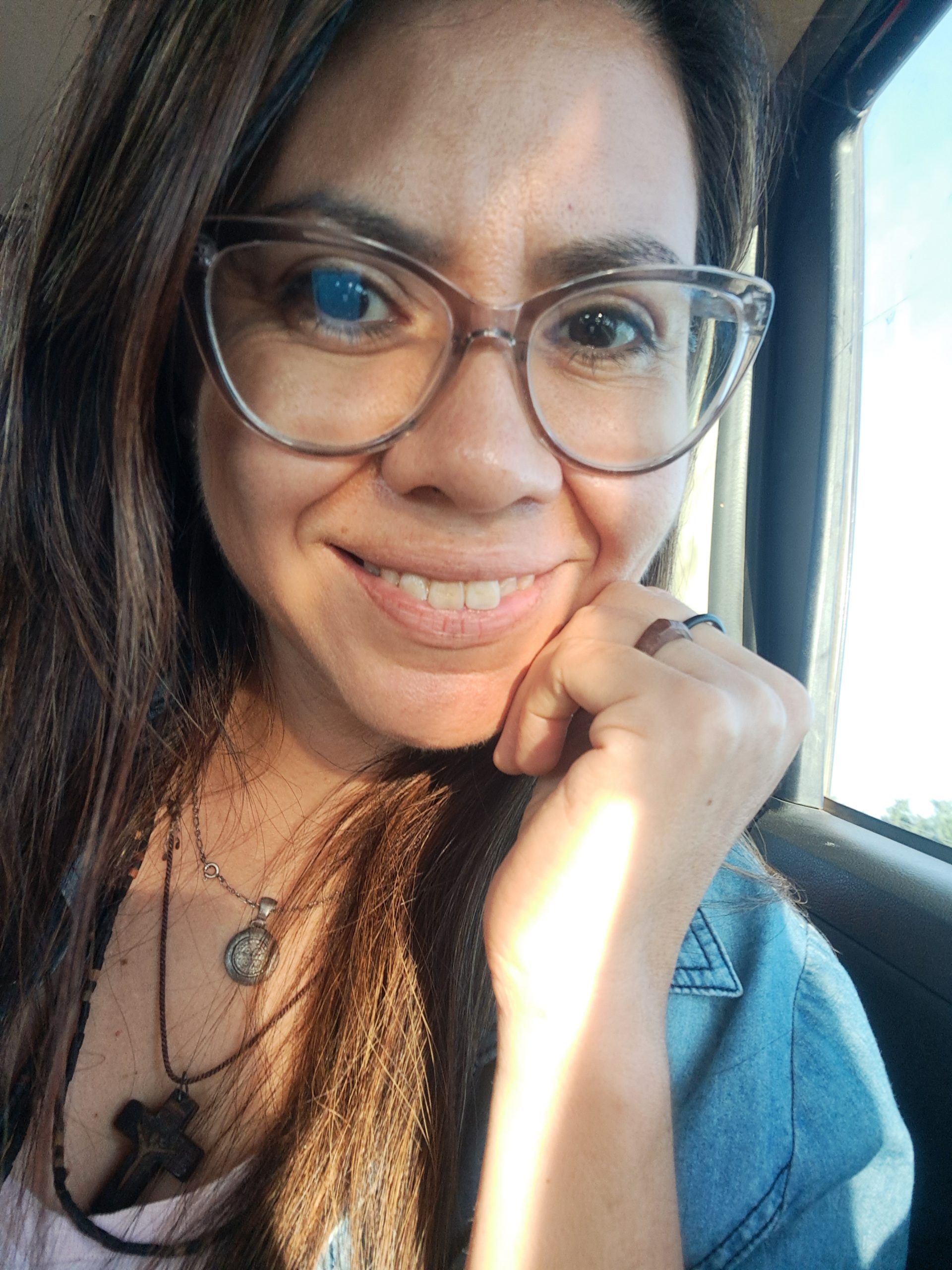
María Eugenia Carrizo is a teacher, social psychologist, and lay missionary with the Society of Jesus. For the past 10 years, she has supported the struggles of the Indigenous peoples of the Gran Moxos region.
